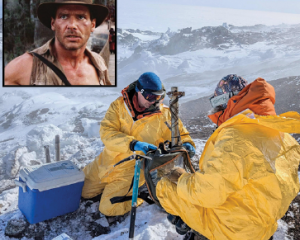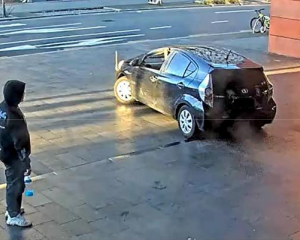
Police have made further arrests in attempts to dismantle an international organised crime syndicate smuggling Class A drugs through Auckland Airport.
Twenty search warrants were carried out across the Auckland region on Thursday by the National Organised Crime Group and Customs, and eight associates from the Brotherhood 28 MC gang were arrested - including its president.
They were charged with 170 separate drug offences.
Detective Inspector Tom Gollan said since the beginning of the year, police had seized two consignments of drugs, totalling 630kg of methamphetamine worth $220 million, and 112kg of cocaine worth $50.4m, as part of Operation Matata.
During Thursday's warrants police also seized $50,000 in cash, multiple rounds of ammunition, along with jewellery and electronic devices.
None of those arrested in this week's search warrants were baggage handlers, but facilitators and controllers sitting over the top of the syndicate, Gollan said.
He said there were also links to the Comancheros gang and Headhunters.
"Had the drugs that were seized gone on to be distributed around the country, you can just imagine the significant misery that it would cause to our vulnerable communities."
Since February, there had been 43 arrests in total, 20 of which were baggage handlers employed by baggage handling companies operating at Auckland Airport.
Police have been working in collaboration with Homeland Security Investigations in the US, police liaison officers in other countries, and NZ Customs.
"Obviously the major profits that can be made in New Zealand are very attractive to overseas syndicates," Gollan said.
"We're seizing shoe boxes at baggage handlers' addresses that are filled with $200,000 in cash, and that kind of thing."

"That's some of the type of money that these poor boys are getting corrupted with," he said.
The gangs were working together, Gollan said.
"One gang in particular may have a set of baggage handlers which they will almost hire or rent out to another gang, to take a cut of the profits."
Customs investigations manager Dominic Adams said Operation Matata represented one of the most significant breakthroughs in the fight against international crime groups in recent years
"New Zealand's high volume of legitimate trade and travel creates opportunities for criminal infiltration," he said.
"This is not a new method used by transnational syndicates - it has been an issue around the world for several years - we are not immune to it.
"Every day, our teams work nationally and internationally to identify vulnerabilities and strengthen New Zealand's border."
Adams said the criminal networks actively sought out people in parts of the international supply chain.
"They'll use all sorts of ways to exploit them, by exploitation that can be inducements with money, and that's most often the case, or trying to convince them to do things that they wouldn't otherwise do," he said.
Adams said they had been working with the baggage handling companies to tell them what to look out for.
"Education is key, and in talking to them, helping them understand what is normal, what is not," he said.
"Understanding that if someone turns up one day with, perhaps, a nicer car or nicer clothing... then they need to get a hold of us."
The problem was not solely in New Zealand, Adams said.
"This is happening in Australia, it's happening in the UK, it's happening in the US, and because we share so much information with these other partners, we've got this intelligence transfer, but it's not just intelligence it's also tradecraft."
"Every day, our teams work nationally and internationally to identify vulnerabilities and strengthen New Zealand's border."
Auckland Airport head of terminal operations Richard Deihl said: "These latest arrests demonstrate the strong and effective collaboration between police, Customs and the airport community to disrupt the global drugs trade and prevent harmful substances from reaching our community.
"Everyone in the airport system, from airlines to ground handlers and the airport company itself, is united in our commitment to stamp out drug trafficking at the border."














